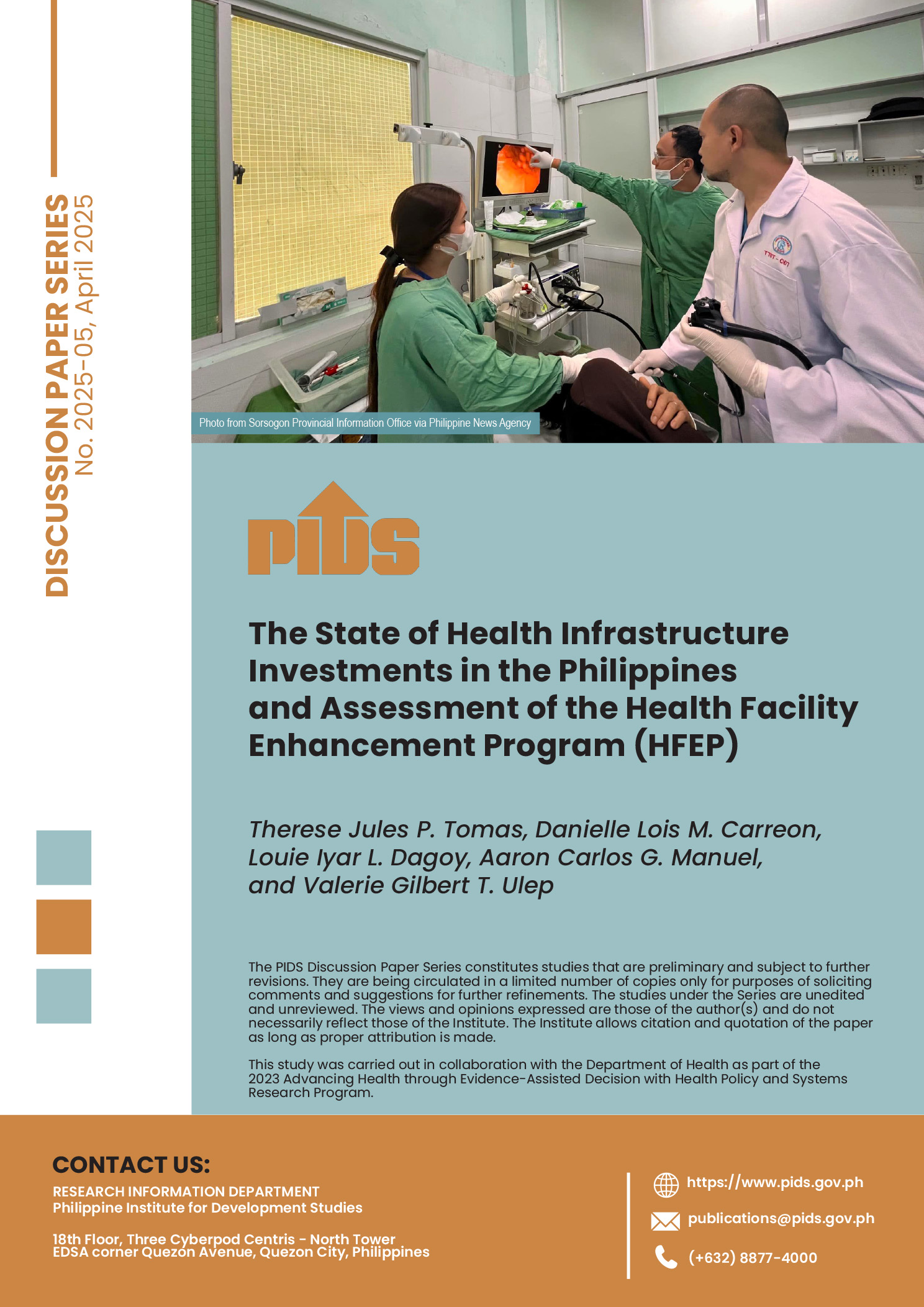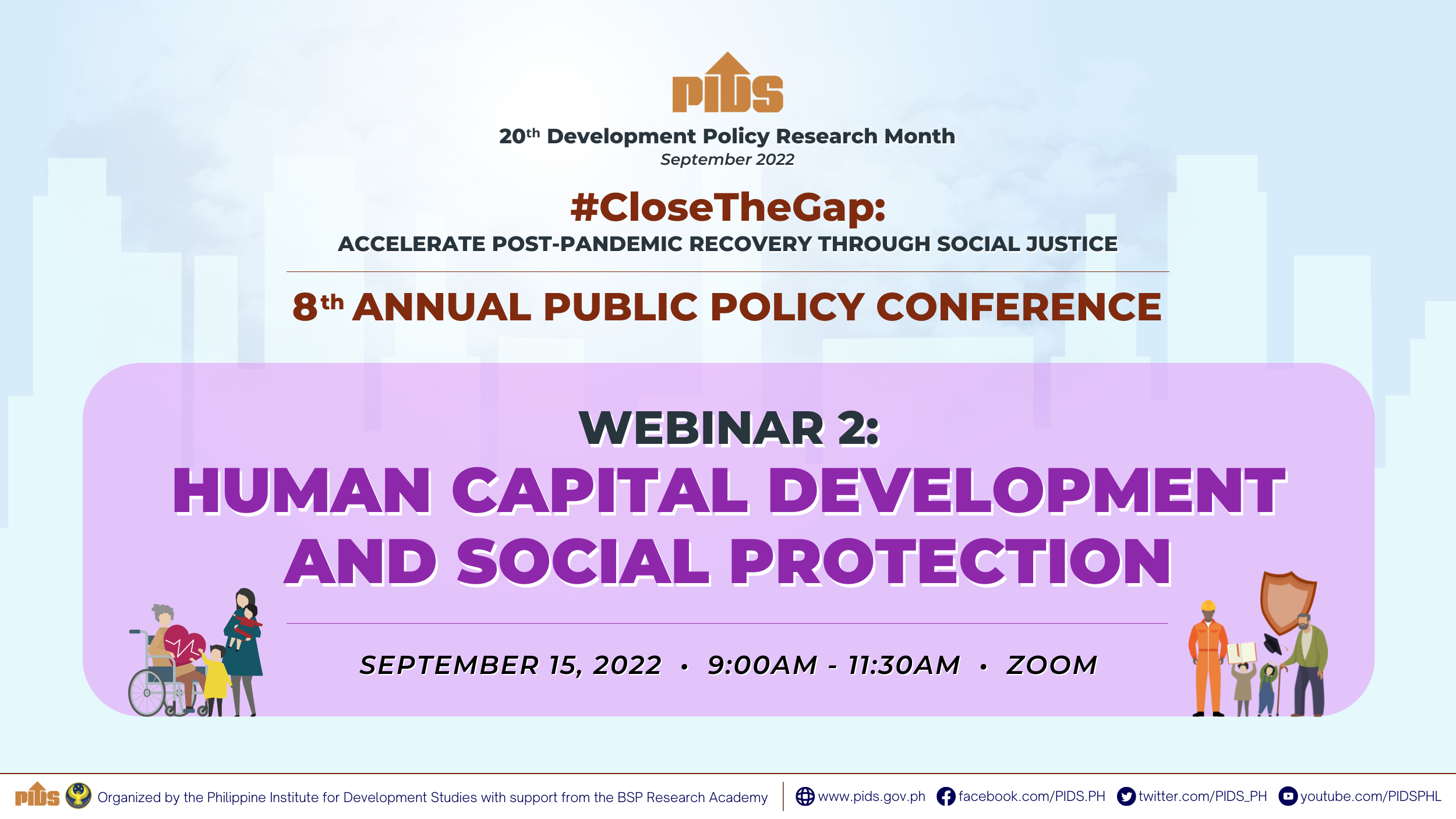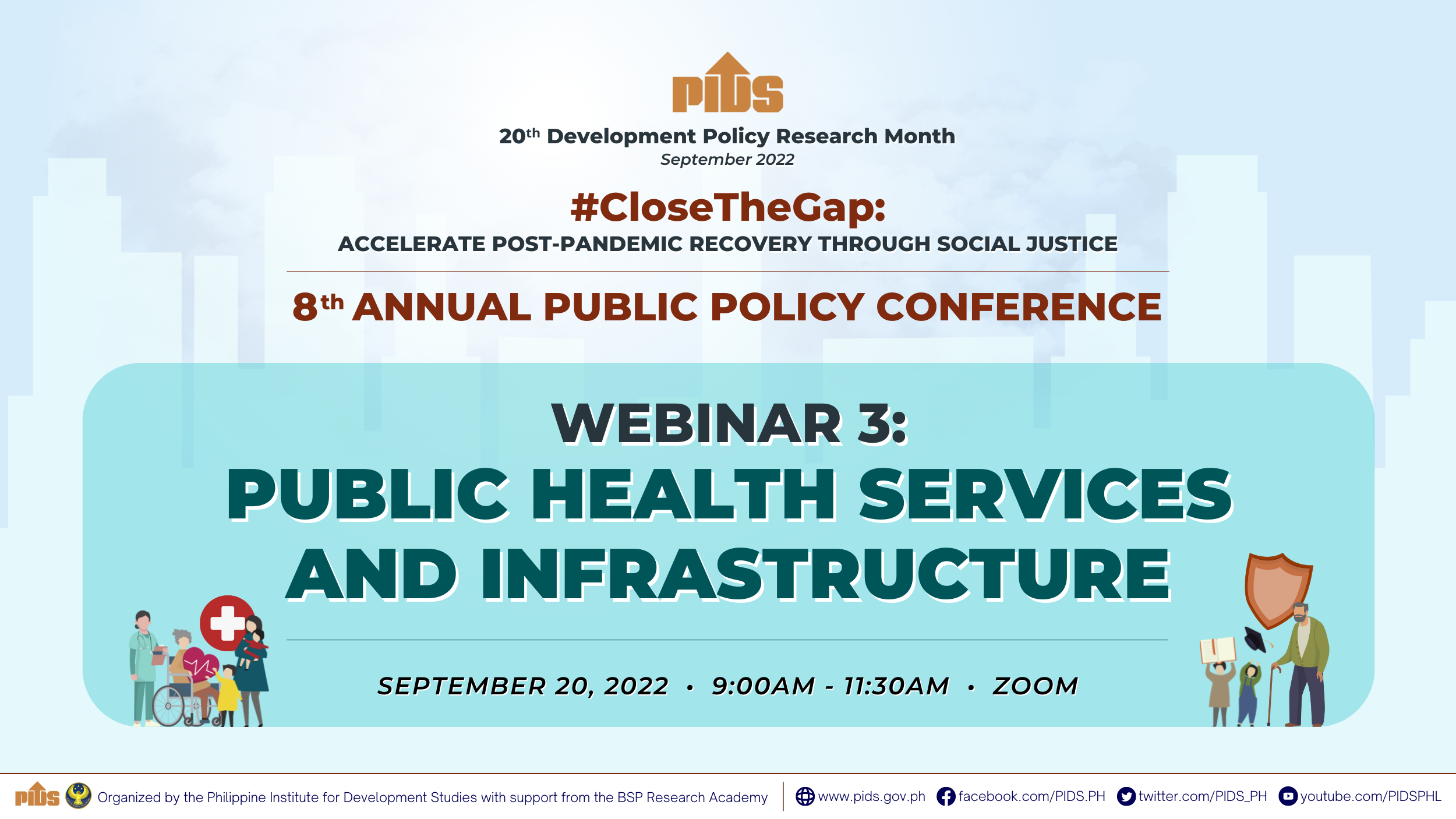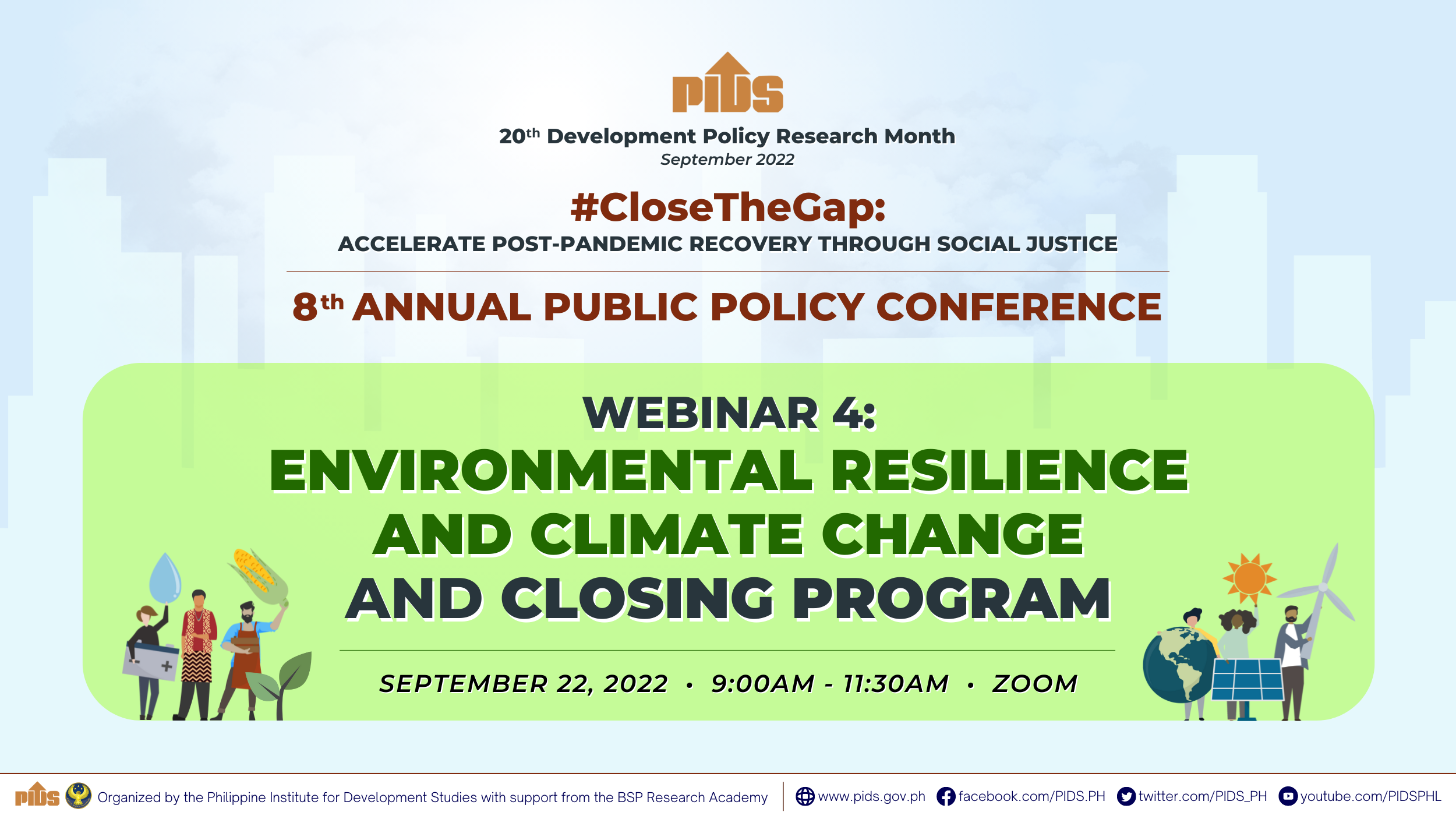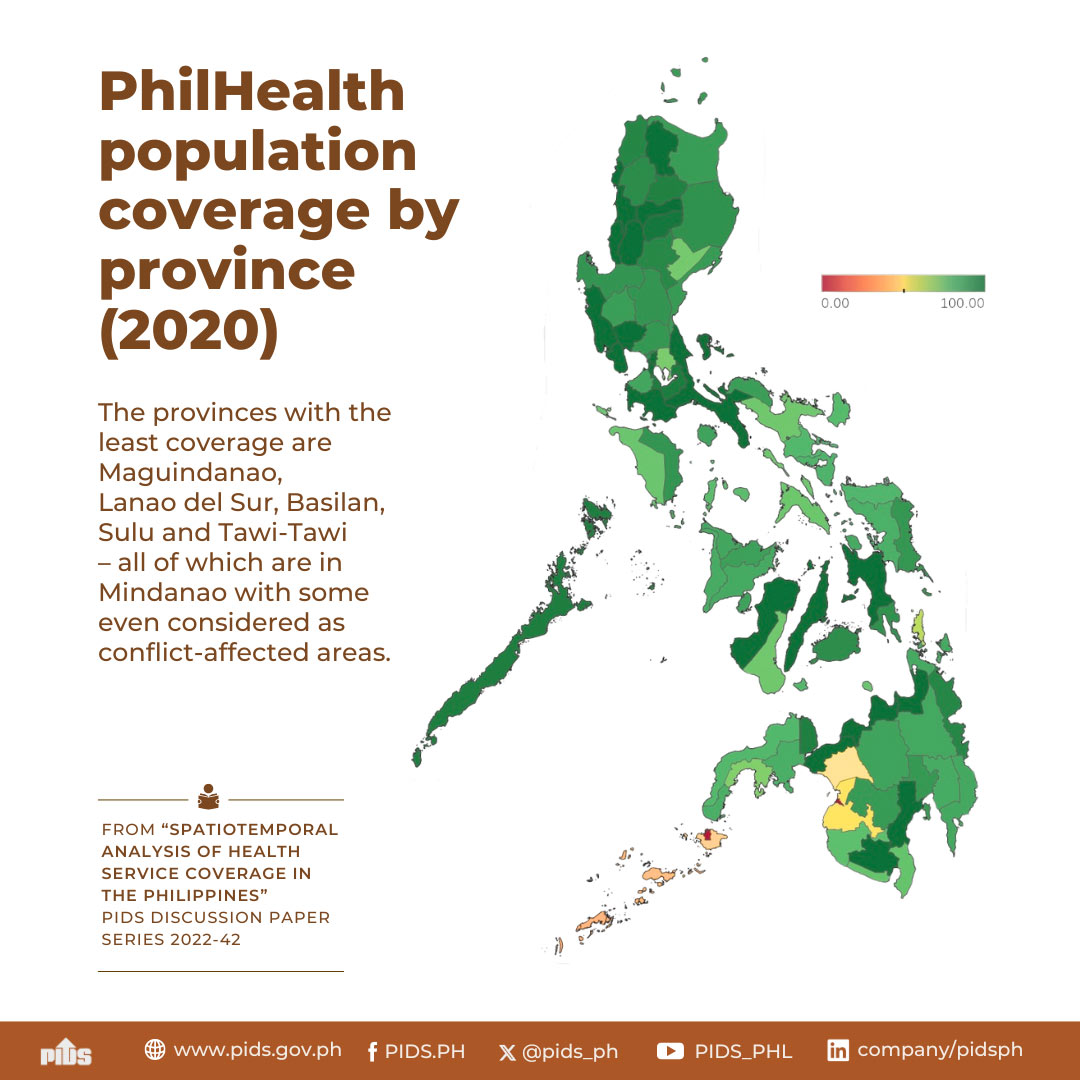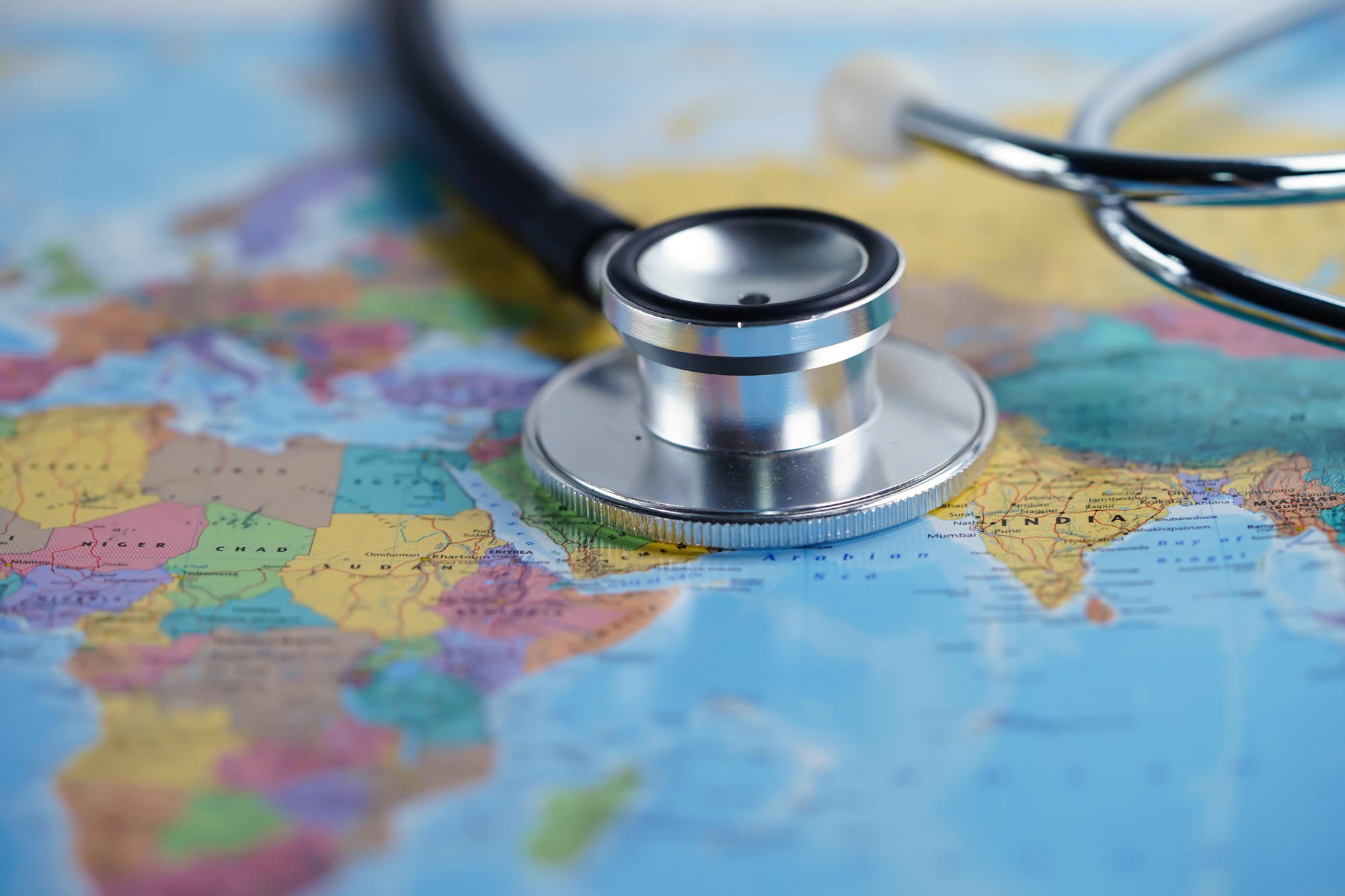
“The world is wealthier than before, but it is not necessarily healthier.”
This was how Susan Pineda-Mercado, special envoy of the president for the Global Health Initiatives described global health in the face of the New Globalization during her presentation at the fifth Annual Public Policy Conference (APPC) conducted recently.
According to Pineda-Mercado, whatever is happening to the world’s physical environment has an impact on health outcomes.
“The obvious effects of the increase in surface temperature are extreme heat and drought which affects our food production and nutrition, and the melting of the icebergs (as exhibited on various multimedia platforms) which affects us through unpredictable and frequent disasters such as floods and intense storms,” Pineda-Mercado explained.
She also mentioned that environmental risk factors, such as air pollution and climate change, have resulted in “more than 3.5 million deaths” globally every year.
Changes in the environment have affected not only humans but also the “behavior of insects”, said Pineda, citing as example the Aedes aegypti mosquito—“a vector for dengue that is now seen in cities of temperate zones when this used to be confined to the tropics”.
Apart from environmental issues, other health problems should also be looked into like the increasing intake of processed foods, prevalence of noncommunicable diseases, alcohol and smoking, mental health, teenage pregnancies, and the spread of viruses including HIV. There is also the problem on decreasing rates of immunization, which is supposed to protect children from vaccine-preventable diseases like measles and polio.
“A lot of these [threats] come from a highly globalized environment where you have porous transport of goods, people, services, ideas, and viruses across the world,” Pineda-Mercado explained.
Given these global health risks and threats, Pineda-Mercado said the challenge lies in determining how to keep the population healthy.
She urged the health sector to increase the size of the healthy population. This way, there will be a “smaller population exposed to risks, and therefore, a smaller population with sickness, and a smaller population without access to health services”. Pineda pointed out that at present, 90 percent of resources for health goes into the population of the sick and hospitalized.
Among her suggestions to address these issues were to prioritize universal health care, maximize the role of local government units, use information technology, strengthen health regulations and epidemiology, and enhance strategic communication and health promotion among Filipinos.
Furthermore, she encouraged the health sector to work with other sectors such as education, energy, housing, agriculture, trade, transport, and the arts to create a ‘health-promoting environment’.
“It is about creating healthier environments and settings—places where people live, learn, work, and play. It is about people having more skills and knowing what they should and should not eat, getting them to move around more, not to smoke and not to drink,” Pineda-Mercado explained.
Started in 2015, the APPC is the culminating activity of the Development Policy Research Month, a nationwide celebration every September to highlight the importance of research evidence in policy and decisionmaking in the country. This year’s conference, which carried the theme “Navigating the New Globalization: Local Actions for Global Challenges”, was organized by state think tank Philippine Institute for Development Studies in partnership with the Bangko Sentral ng Pilipinas, Department of the Interior and Local Government, National Economic and Development Authority, Department of Foreign Affairs, Philippine Competition Commission, Department of Trade and Industry, and Asian Development Bank. It was attended by over 400 representatives from the government, private sector, academe, and civil society.###
This was how Susan Pineda-Mercado, special envoy of the president for the Global Health Initiatives described global health in the face of the New Globalization during her presentation at the fifth Annual Public Policy Conference (APPC) conducted recently.
According to Pineda-Mercado, whatever is happening to the world’s physical environment has an impact on health outcomes.
“The obvious effects of the increase in surface temperature are extreme heat and drought which affects our food production and nutrition, and the melting of the icebergs (as exhibited on various multimedia platforms) which affects us through unpredictable and frequent disasters such as floods and intense storms,” Pineda-Mercado explained.
She also mentioned that environmental risk factors, such as air pollution and climate change, have resulted in “more than 3.5 million deaths” globally every year.
Changes in the environment have affected not only humans but also the “behavior of insects”, said Pineda, citing as example the Aedes aegypti mosquito—“a vector for dengue that is now seen in cities of temperate zones when this used to be confined to the tropics”.
Apart from environmental issues, other health problems should also be looked into like the increasing intake of processed foods, prevalence of noncommunicable diseases, alcohol and smoking, mental health, teenage pregnancies, and the spread of viruses including HIV. There is also the problem on decreasing rates of immunization, which is supposed to protect children from vaccine-preventable diseases like measles and polio.
“A lot of these [threats] come from a highly globalized environment where you have porous transport of goods, people, services, ideas, and viruses across the world,” Pineda-Mercado explained.
Given these global health risks and threats, Pineda-Mercado said the challenge lies in determining how to keep the population healthy.
She urged the health sector to increase the size of the healthy population. This way, there will be a “smaller population exposed to risks, and therefore, a smaller population with sickness, and a smaller population without access to health services”. Pineda pointed out that at present, 90 percent of resources for health goes into the population of the sick and hospitalized.
Among her suggestions to address these issues were to prioritize universal health care, maximize the role of local government units, use information technology, strengthen health regulations and epidemiology, and enhance strategic communication and health promotion among Filipinos.
Furthermore, she encouraged the health sector to work with other sectors such as education, energy, housing, agriculture, trade, transport, and the arts to create a ‘health-promoting environment’.
“It is about creating healthier environments and settings—places where people live, learn, work, and play. It is about people having more skills and knowing what they should and should not eat, getting them to move around more, not to smoke and not to drink,” Pineda-Mercado explained.
Started in 2015, the APPC is the culminating activity of the Development Policy Research Month, a nationwide celebration every September to highlight the importance of research evidence in policy and decisionmaking in the country. This year’s conference, which carried the theme “Navigating the New Globalization: Local Actions for Global Challenges”, was organized by state think tank Philippine Institute for Development Studies in partnership with the Bangko Sentral ng Pilipinas, Department of the Interior and Local Government, National Economic and Development Authority, Department of Foreign Affairs, Philippine Competition Commission, Department of Trade and Industry, and Asian Development Bank. It was attended by over 400 representatives from the government, private sector, academe, and civil society.###

